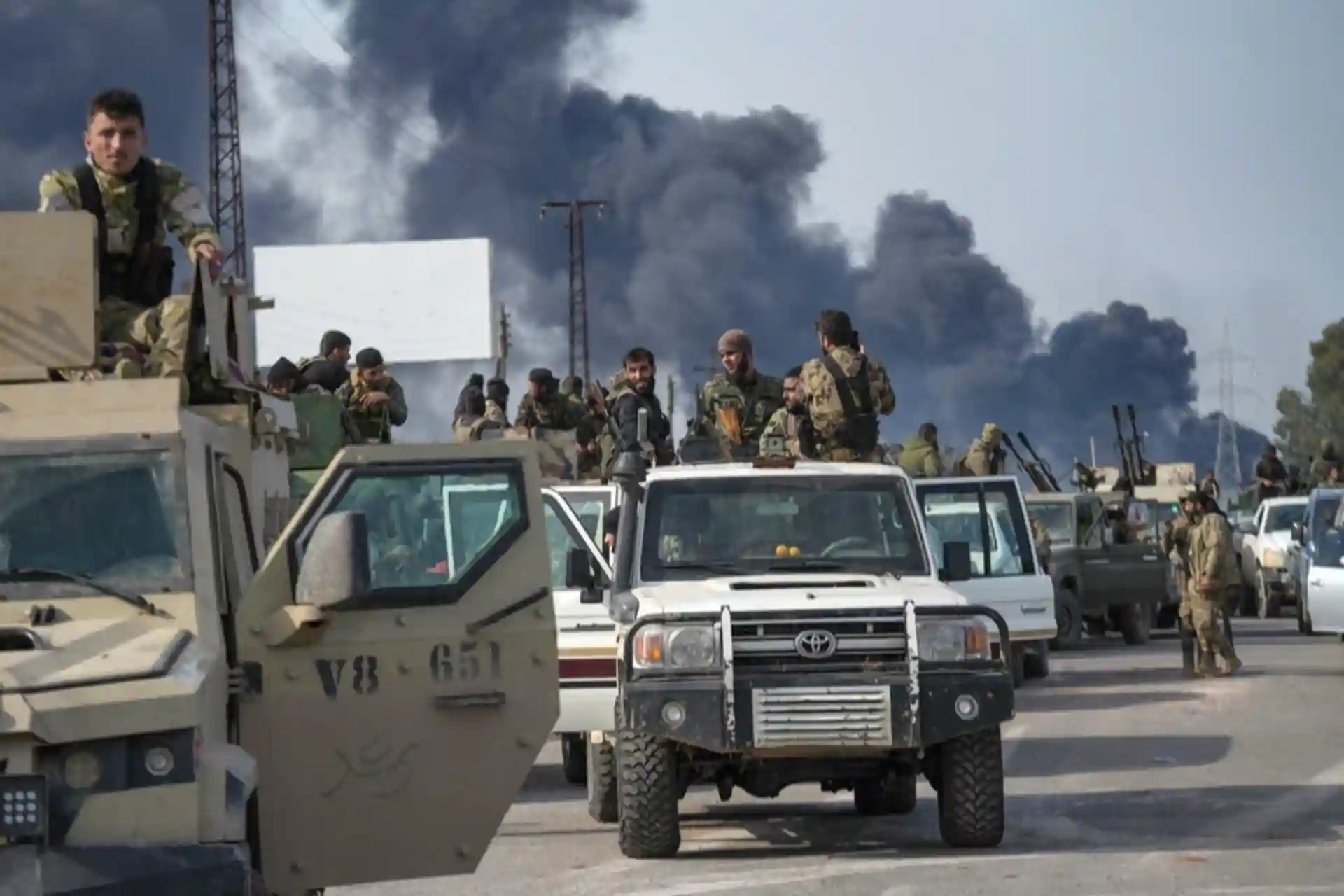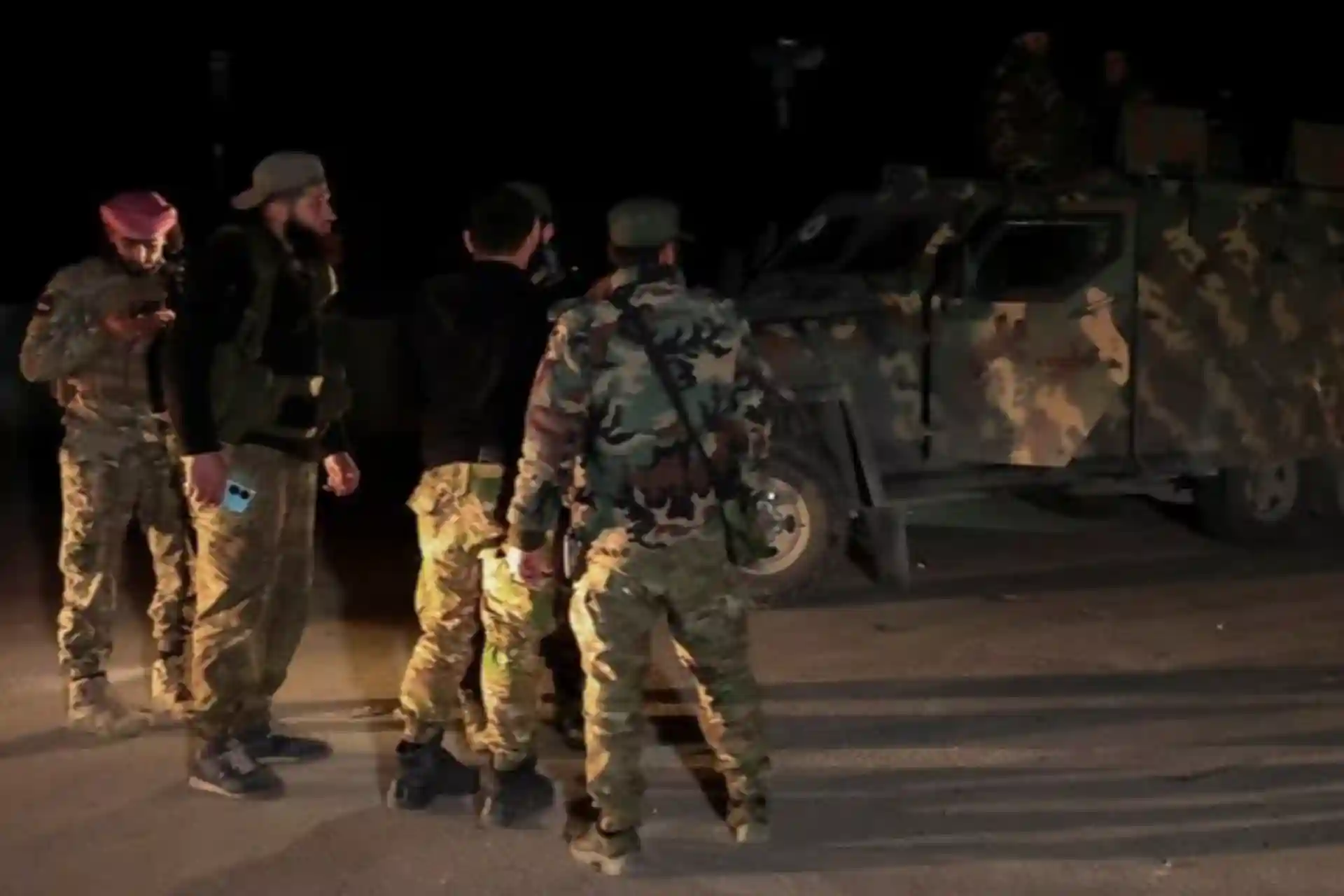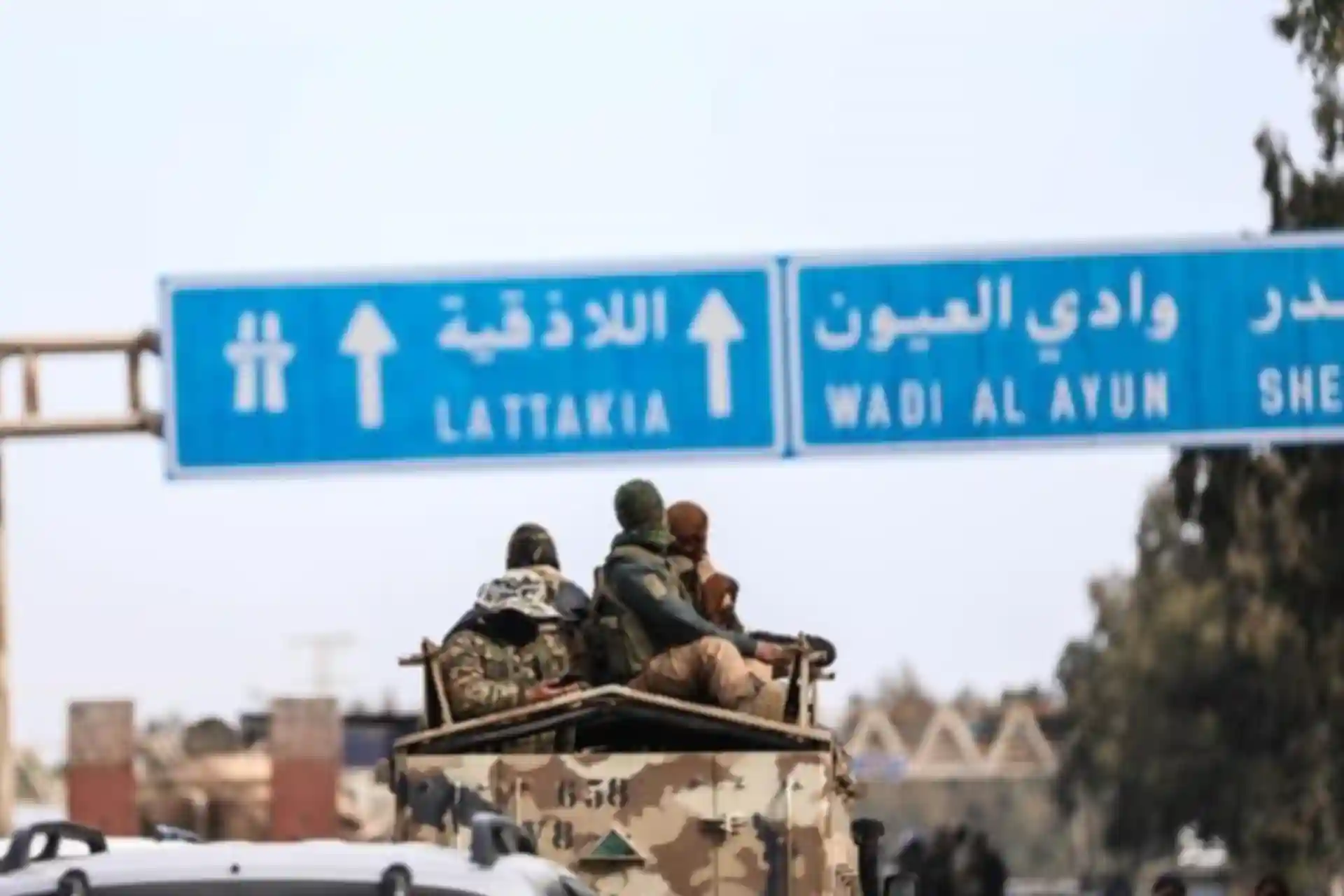The Alawite Uprising in Syria. What Really Happened?
The Alawite Uprising in Syria. What Really Happened?
As you know, recently in Syria, there were reports in the media that the Alawites rebelled against the new government, and that government forces massacred the rebels, including civilians. So, what really happened? Were representatives of national minorities - civilians - really massacred? The president of the Syrian Forum in Belgium, who directly observed the events, spoke about this We hear from Dr. Khalid Muhammad Kamal .
March 6, 2025 – Makr Night.
After the fall of Aleppo, we activists from the coast gathered in a WhatsApp group and called on the sheikhs of the Alawite community to stand up to Assad and take a patriotic stance. Unfortunately, we did not receive a response from them.
After the former brutal regime was overthrown and all of Syria's lands were liberated, they issued a mass appeal for amnesty. This is exactly what provoked everyone's anger.
Then, both official and unofficial groups marched to Loziqiya. We tried to support the military administration as much as we could. At that time, the military administration was headed by Sheikh Hassan Suffon.
The approach demanded by the new government at that time was that we should be tolerant towards minorities, in accordance with the teachings of our religion, and avoid actions that could cause conflict. Then, several meetings were held, both private and public. The new government organized several pilgrimages to appease the minorities and create a good image of the new government. Because everyone was worried that there would be a retaliation against them.
These contacts continued until life in the city returned and everyone felt safe. No one can deny that the respectful treatment of the security forces in particular contributed greatly to the peace. So much so that even the Alawites themselves have now started raising their voices and demanding their rights. The government has also responded positively to this as much as possible.
The inspector and his office tried so hard to resolve all the problems that everyone in the city knew the phone numbers of Sheikh Hassan Suffan and the inspector. Sheikh Hassan and the inspector had only one demand - to find the wanted men and demand that they hand over their weapons.
(In fact, despite all our efforts and contacts over the past three months, not a single one of the wanted individuals has been handed over. And most Alawites were also aware of the latest operation carried out by the remnants of the overthrown regime.)
The illogically large number of employees in the former government agencies was also a big problem. Eight hundred employees were hired in places that could accommodate two hundred people. Most of them had practically nothing to do. What caused the new government difficulty was to examine the records of the employees who had left. Before that, employees were given three months of paid leave.
As a result, the Alawites began to demand that their children be returned to work. After all, it was true that the Bashar Assad administration had silenced their voices by allowing people to take bribes from their compatriots and abuse their jobs. Consequently, the country was surrounded by such corruption.
This situation required serious efforts to capture the wanted persons hiding among the Alawites. Therefore, in my opinion, the law enforcement agencies were aware of the details of this operation that they were carrying out. This situation gave them the opportunity to kill the snake outside its nest. The operation was planned not locally, but on a national scale, and consisted of several stages:
The first stage: the establishment of the Alawite representation. Sheikh Ghazal and Basil Khatib, the head of the snake, did this by announcing the establishment of the Islamic-Alawite Council.
Second stage: Organizing a media army through celebrities and internet pages like Miqdad Fatiha.
The third stage: to obtain the promise of "the right to autonomy." This could be achieved by holding meetings with Hezbollah in Lebanon and militants in Iraq. At the same time, it was necessary to form an alliance with the SDF (Syrian Democratic Forces) and the Sheikh Hijri community in Suwayda.
Start of the operation.
Security forces entered the village of Dolia to receive one of the wanted men from the mayor and the village head. One of the wanted men was received. I myself did not lose contact to be directly informed of the operation. After one of the wanted men was handed over, the security forces were attacked by a group between the villages of Dolia and Beit Ono. Thirteen security forces were killed when a heavily armed group launched an ambush.
The war began here, the plan was as follows:
Complete capture of the city of Jabala; Block possible aid from the roads to Homs, Tartus, Baniyas, and Jabala through several stages; Then mobilize the forces of the former regime in the cities of Tartus, Baniyas, and Latakia.
The plan worked almost perfectly, and the relief routes were closed as planned. Many civilians were killed in the process, who became targets of indiscriminate fire. As a result, the city of Jabalah was completely captured.
According to the plan, Iraqi fighters were to enter first through Palmyra and then through Homs. This was planned to be carried out under the leadership of Maher al-Assad at the agreed time. Lebanese Hezbollah fighters were also to enter through Qusayr at the same time and unite in Homs. Thus, Maher's forces and Bashar al-Assad's orphaned supporters were to enter from the mountains and northern Lebanon, intend to capture the coastal cities and kill the forces on duty in the area and block the internal roads into Syria, and this is what happened. At the same time, fighters affiliated with the Communist Party in Kurdistan were planning to advance towards Aleppo from the east and capture the city.
At the same time, hidden remnants of the former regime were circulating among the pro-government groups in various parts of Damascus. The goal was to unite with the militants who had declared war by removing the state flag from the administration building in Suwayda in Damascus, under the protection of Zionist warplanes.
Turkish intelligence, which learned of this plan, informed the Iraqi government that Turkish warplanes were ready to strike any movement in the sky near Syrian territory. Then, the Turkish "Bayrakdar" military drones moved in and were the first to strike the "Qandil" militants who were approaching Aleppo with the declaration of war and the control points of the operation. This attack forced them to stop the attack and retreat.
Turkish planes were in the sky, warning the Zionists that they would pay the price if they intervened. As a result, the Zionists were unable to intervene, and the militants in the south were left defenseless.
The Syrian people called for a mass mobilization. Tens of thousands of their compatriots marched to Hevran and Quneitra at night, and the movement south of Damascus was defeated. Then the remnants of the former regime's supporters in other areas of Damascus took action. The army and security forces were in ambush against them.
Their movement on the coast was repelled by the security forces in the coastal cities. As a result of their fierce and vicious attacks, more than one hundred and fifty members of the security forces were killed. They occupied the cities and blocked the roads and bridges. After a call for mass mobilization, a hundred thousand armed forces arrived in the area and pushed them out. Then, the entrances to Lebanese territory were closed from Qusayr and Tartus. Then, a war broke out with the remaining forces in the area. As a result of attempts to retake the cities, all enemy forces were eliminated and the coup attempt was put to an end.
Later, help arrived and the snake's head was severed from its body.
Maher Assad recently left Iraq for Russia, convinced that the Syrians had foiled his and his brother's coup plot, just as they had foiled his father Hafez Assad's. The Syrians had foiled the coup, destroying Maher's last hope.
The result of all these efforts:
– We, as a people, support our state and the government's directives. Because we believe in their domestic and foreign policies, reforms, and serious efforts to reduce crime.
– This stage has brought nothing to Syria other than the unification of its administration through the efforts of its children.
– At the same time, we will never forget the noble efforts of many Alawite compatriots who, during this night of betrayal, opened their doors to the wounded among our soldiers, security forces, and civilians, and their efforts to stop this massacre.
"We want Syria to be a unified state. We will not accept any division, and we will work for a secure and harmonious society."
We did our best to stop this massacre. But the remnants of the former regime pushed us to this point. Now, we feel that we need some time to heal our wounds and begin the process of rebuilding a wounded Syria.
Therefore, in the future, we will continue to extend our hand to those who sincerely desire cooperation with us under the name of this state. We are closer to our Alawite compatriots than Iran or Russia. At the same time, the establishment of justice in this transitional period and the taking of necessary measures for all those wanted remain our inalienable demands. We will never allow anyone to oppose the principles that set us on our feet on the path to building a just Syria with its own culture.
Dr. Khalid Muhammad Kamal



